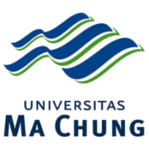
This Volume 2 No 2 (2018) issue of KLAUSA presents a portrait of the condition of language teaching in the 21st century as well as a reflection for the academic community to continuously process and contribute to the society. The 21st century is characterized by abundant information technology innovation that provides great opportunities to raise the quality of education. Educational personnel need to reform education practices in facing the digital era. In this issue, several authors have contributed to the challenges of this digital age through their writing. Ginting writes how technology can build 21st century teachers’ capacities such as critical thinking, collaborative, creative and innovative learning, self-reliance, and individualized learning. IMOOC (Indonesian Massive Open Online Course) serves as a reliable online instruction since it is open for everyone to join, provides current information about educational issues, and provides trainings for teachers to improve their teaching skills. From across the Pacific, Leticia Araceli Salas Serrano discusses how that teacher-preparation has become an important issue in Mexico as a teacher evaluation process is being carried out all over the country as part of the recent educational reforms. In the spirit of Industrial Revolution 4.0 and the incorporation of online technology in language learning, Tantri has discovered that teachers are still bewildered when it comes to managing hybrid learning. From the field of literary studis, Tayongka explores the meaning of happiness through the protagonists in animated movie Trolls (2016). Happiness denotes some meanings: happiness is something one can get without cutting throat; happiness can be achieved by being frank to people in our surrounding; happiness is something one gets by increasing tolerance; and happiness can be achieved with every effort to achieve that happiness itself. This issue of KLAUSA concludes with a review article by Antono Wahyudi. He summarizes the major points regarding the concept “to understand” (memahami) in the perspective of modern and post-modern hermeneutic interpretation.
Articles
-
Optimizing Face To Face Interactions In English Classroom Blended Learning Of Higher Education LevelDOI : https://doi.org/10.33479/klausa.v2i02.156
 Abstract View: 195,
Abstract View: 195,  PDF Download: 441
PDF Download: 441
















